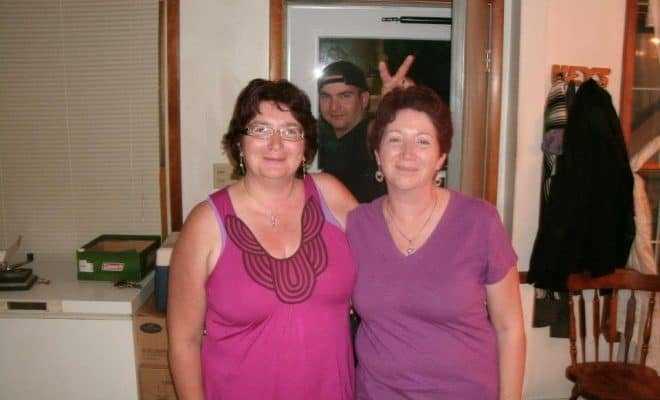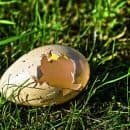Family Ties Revisited

- The Day the King Died
- Family Ties Revisited
- Those Whom the Gods Love
A slow trickle of information, spanning years, helps me become more familiar with Pal Bhapaji and his household. The partition of India and Pakistan, displace the family. They lose their home and belongings, and arrive in Delhi as refugees. All of them, including Pal’s parents, wife Leela, and his sisters, Harsh and Santosh, comprise the household. Relief agencies assign tents for temporary accommodation. A few months later, they allocate a house in a new township, Kalkaji, allowing them to begin life afresh, from scratch. Landing a job at the main Post Office, several miles away, becomes Pal’s reality. A bicycle is his sole mode of transportation.
The 1950s are a challenging era for the entire family. Old memories haunt them as they rebuild lives—not an easy task. In the face of difficulties, they find solace with each others’ presence and the comfort of being under the same roof. From the fringes of various conversations, I sense Daddy empathizes with them, offering both encouragement and praise. Fragments of exchanges help me understand, our grandfather’s younger brother, Pal’s father, is gone leaving his mother a widow. For our dad, he has lost his father figure. Pal and Jamuna Dai are now the family’s backbone.
For years, Pal uses his bike to go to and from work. He dreams of a motorcycle like my dad’s, but cannot afford it. Shorter days, unlit streets, and dark, dangerous roads combine to make the ride challenging during winters. Overcoming all trials, he stays resolute to provide for the family.
Pal enjoys my company, even my bratty side. He asks Daddy for permission for me to have a three-day weekend in Kalkaji. He stops by after work, to pick me. My hands grip the handlebars, I perch sideways on the middle bar, and listen to my parents’ whispers to behave. Its my first time away from home. It’s a long and frightening ride. As darkness falls, I chatter nonstop to hide my fears. Occasional headlights of cars whiz by us from both directions as my grip tightens. The bike journey and visit decades ago, are vivid in my memory. Small insignificant details haunt me.
Harsh Didi and Santosh Didi conduct neighborhood tailoring classes. Measuring tapes drape their necks imparting a professional appearance. Both excel at taking measurements of a person and marking the inches onto fabric using dots, dashes, and curves. Chalk dust smudge their fingertips as they cut the material and feed it under the presser foot of the sewing machine. Repeat the steps, measure, mark, cut, and sew, until the garment is put together. Finishing touches to the attire include hand hemming, adding buttons, and creating buttonholes. Look! A brand-new outfit is ready to go.
Everyone pitches to help supplement the household income. Harsh Didi’s marriage signals the end of years of tailoring classes. My father, Sucharita, and I attend the wedding. It is the last time I see Kirti. We move to Bangalore within the next few months.
The local school offers classes twice a day, each morning, and every afternoon. Sharing textbooks, Kuna goes to morning school and Kirti attends the later one. Kuna has to rush back from school to give Kirti the books so he can leave for school. She can’t linger to talk with her friends. The Saturday morning of my visit, I watch a mother agitate as Kuna doesn’t return from school. She’s late, and a scolding awaits her. Kuna, avoiding my eyes, looks miserable. She cannot explain herself. Her sweet sad expression speaks to her inability. She casts a fleeting look in my direction. Catching Kuna’s glance crushes her mother—unable to scold her anymore. She turns away with moist eyes. A silent spectator, the small vignette clings to me, and has a special place in my heart.
The Post Office holds a Family Evening. Pal Bhapaji wants to take me to the event. My parents give the green signal. The variety show by the office personnel is a lot of fun. Two things from that occasion remain vivid: the performances and the assortment of delicious treats. One presentation is a traditional Indian dance. The audience’s guffaws shake their chairs, sending them tumbling. What’s funny? While the dancer’s movements appear enthusiastic, they lack humor. Glancing again, I spot the heavy makeup. Upon closer inspection, I detect some masculine traits, such as the sideburns peeking through the pancake, and dramatic movements of the hands and eyes. It’s a man donning a woman’s dance outfit—I laugh aloud! Another performer, a gentleman wearing a bow-tie, belts “Three Coins in the Fountain” à la Frank Sinatra. I think he does well. On the way back home, Pal asks if I had a good time. I nod, my head bobbing up and down, and am happy to see his broad smile. It’s close to dark when we reach home. As I fall asleep, I think of the perilous bike ride and pray for his safe return.
One specific incident triggers a wave of regretful cringing every time it crosses my mind. Mummy, Munna, Juji, and I visit Delhi for our summer break. Delhi’s heat is unbearable, and we are sweltering beneath a scorching sun. An uncle’s twin grandsons are celebrating a Mundan ritual, a head-shaving tradition for boys, akin to a christening. The location is a distant town reachable by train. It’s a blistering walk from the train station to the venue-a hot, sandy sidewalk under our feet. Upon arrival, we find the location teeming with guests. A lively buzz fills the air as people greet one another and chat. I spot an empty chair and slump into it, a dead weight. My aching feet are happy. Hot air circulates via a ceiling fan drying the sweat, at least. Relatives are fussing over Juji, my adorable baby-sister, while my hyperactive Mom chats with them. Pal Bhapaji arrives with his family. My body feels heavy and unyielding as lead, making it impossible for me to gather energy to stand. Spotting me in the corner, he smiles. I also smile, and without budging, I join my palms, a namaste greeting. From the corner of my eye, I catch Mummy’s nod and frown, a silent command to rise. Feigning ignorance, I continue to sit. A shadow passes across Pal’s face and I realize I am guilty of offense.
Later in the day, I have a few moments with him, and he expresses his hurt.
“You’ve grown up too quickly.”
The words cut deep and entrench in my conscious. It has been six years from when we last met at Harsh Didi’s wedding. I’ve been impolite by failing to acknowledge him, leaving my seat to offer a hug. I try to explain, the draining walk in the blazing sun. My words sound hollow to my own ears. Despite his lifetime of tireless devotion to family, with no complaint of exhaustion ever, ensuring I had good times, I have the audacity to use tiredness as an excuse. Even now, I shudder at the memory of those moments. I don’t conform to the standards of a model citizen. Although I can recall other instances of failing, this incident evokes a deeper sense of apology than any other every time it resurfaces.
***
Everyone addresses Pal’s mother as “Bhabhiji.” It’s possible we pick it from Kaushalya Auntie, who is her niece by marriage. Despite the age gap, the two women share a loving friendship. To Auntie, Bhabhiji is more of a loving older sister and mother. She is the wife of her father’s younger brother. The elders marry them off before they can blink. Winning her husband’s love takes a while. On the other hand, the little girl, Kaushalya, gravitates to her Aunt right away. Every time she sees Bhabhiji, Auntie’s face beams with a radiant smile. I’ve seen the closeness of these two during my growing years, mainly when Shashi Didi falls sick and eventual passes years later.
Shashi, Auntie’s eldest daughter, graduates with an MBBS from Lady Hardinge Medical College, completes her residency, and hopes to improve her family’s life. As a pathologist, she earns a good salary. Usha, her younger sister, cannot get into medical school because of inadequate grades. A year of sitting idle ends after her mom presents her with two options.
Auntie’s education ends at sixth grade, with no choices. Despite her objections, she has to quit school to learn domestic skills. Because her sister-in-law supervises her, and there is constant clashing, she finds herself in a long suffering struggle.
Now, she gives her daughter a choice.
“Either continue your education or marry-no sitting idle.”
Usha knows she cannot fight her mother. The rest of the family will back Auntie on this issue.
She scrambles and gains admission into a four-year nursing program, completing her education as an RN. Although she has a well-paying job, it irks to see her older sister, Shashi, as well as younger sister, Sucharita, as medical doctors, and she is not. A flash of inspiration pushes her to reapply to med school, leveraging her nursing grades. Viola! She gets in!
Shashi faces pressure to wed, and a search for a suitable partner is underway. Someone from the medical field would be appropriate. Amidst the active frenzy around her, Shashi becomes seriously ill and is taken to a hospital.
Daddy, sitting at the dining table in Bangalore, is reading a letter from Auntie. She also includes some documents from a specialist assessing Shashi’s illness. He keeps rereading what he has already read, shaking his head, his face drawn. He reads again. Her blood pressure soars, a brain hemorrhage leads to paralysis, and she is unable to move or speak. I’m fearful of his shocking reaction- never seen him like this before. The details reveal that her chances of recovery are minimal to nonexistent. Being a doctor herself, Shashi recognizes the hopelessness of her situation.
During our early years in Delhi, Shashi is close to Daddy. By nature studious and serious, she expresses a desire to follow her favorite uncle, my dad, into medicine. He gives her his full support in every possible way. He pays the same attention to her high school performance and grades as he does to Sudhir and me. During Shashi’s pre-med program, around exams, Daddy quizzes her every evening, ensures her punctuality, and even drives her to the university on his motorcycle rather than using the bus. Upon her admission to Lady Hardinge school, he introduces her to his colleagues. Most of her medical classmates consider him their uncle.
Fewer people visit Shashi now. Auntie stays with her day and night; a chair brought from home for her to sleep. While I live relatively close, I visit every other week. Juggling the demands of school and home, I am also in the throes of a debilitating miserable marriage.
Bhabhiji is the one person who sees them every week, without fail. She supports her niece. Every week, her journey to and from Kalkaji involves two bus changes on each leg of the trip. Shashi receives a visit from her with a loving touch, home-cooked food or fresh fruit.
A few months into hospitalization, Auntie urges Shashi to cultivate positive thoughts for a speedier recovery. Daddy hasn’t found the courage to tell his sister the truth as yet. She asks,
“How much longer can we stay here?”
Shashi knows the answer well. Her eyes reflect the terror of an animal in pain. I witness this and helplessness overwhelms me. I hug and hold Shashi as her body racks with sobs.
Editor: Claudia Cramer










